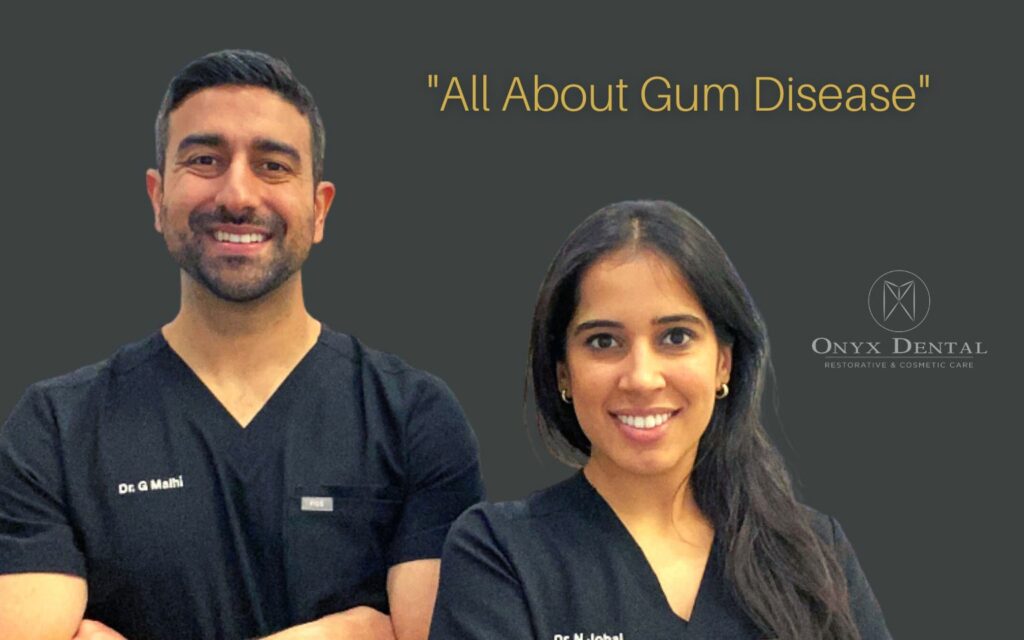Table of Contents
ToggleWe want to help you avoid gum disease!
Did you know that nearly half of North American adults over the age of 30 show signs of gum disease, whilst severe gum disease affects about nine per cent of adults?
It’s extremely common. In fact, gum disease is the number one problem we dentists treat, not cavities as perhaps you may think! And more often than not, gum disease is caused by poor dental hygiene so in reality it is something which can be avoided and prevented. We here at Onyx Dental in Erin Mills want to help you avoid gum disease so here’s some useful information:
What is gum disease?
Gingivitis is the early stage of gum disease and is inflammation of the tissues which surround the teeth often causing red, swollen, and tender gums which may bleed when teeth are brushed or flossed.
The next stage is called Periodontitis which moderate gum disease and occurs when the underlying bone becomes infected, and the gums will begin to recede and form gum pockets (attachment loss) which become a haven for plaque and bacteria.
Finally Advanced Periodontitis happens when a large amount of gum and bone tissue has been lost and the teeth lose their support. If they are unable to be saved at this point the teeth may fall out or need to be extracted.
What are the main warning signs of gum disease?
Bleeding gums is often the first sign of gum disease. Plaque contains bacteria, and as this builds up on your teeth, can cause inflammation in your gums causing redness and soreness and then bleeding when brushing or flossing. There may be some tooth sensitivity too whilst bacteria can enter your bloodstream through inflamed gums and cause a number of health issues such as heart disease.
Gum recession is often a sign that gum disease is progressing. So, if your teeth appear like they are getting longer, or you notice the gum tissue pulling away from your teeth then this is a big warning sign. As the gum recedes pockets are formed providing more areas for plaque to live and harder to remove. Years ago, it was believed gum recession was a normal sign of aging and where the expression ‘long in tooth’ originated to describe getting older. But it is not a sign of aging and can be prevented.
Gum recession or pocketing can lead to tooth sensitivity which might be noticeable when you have hot or cold drinks. This means the gum tissue is chronically inflamed and exposing the root surface of the tooth.
Meanwhile people with type 2 diabetes have a higher risk of gum disease so do let us know if this is something you suffer from. Undiagnosed high blood sugar is also an indication that you may have gum disease as the two are often linked.
What causes gum disease?
As we mentioned earlier, the main cause is improper oral hygiene which enables bacteria in plaque to build up on the teeth and infect the gums. However other factors which increase the risk of developing gingivitis include smoking; overlapping teeth which create areas for plaque to build; hormonal changes during pregnancy or menopause for example; illnesses such as cancer or diabetes; alcohol; stress; poor nutrition; high sugar intake or taking medications.
How to prevent gum disease?
It all starts with good oral hygiene! Flossing and brushing regularly is essential. The aim is to disturb the plaque and bacteria to prevent it from sitting for too long on your teeth.
Next, visit your dentist! We know that sounds simple, but it really is the best way to avoid gum disease. During your routine dental visits, we here at Onyx Dental in Erin Mills can not only advise you on how to clean your teeth properly to avoid the build-up of plaque, but we will also give your teeth a thorough check up and clean when you visit to keep your teeth in tip top condition.
For expert advice on oral hygiene and general dentistry in Erin Mills, contact Onyx Dental at (905) 567-4999 or visit us at 2555 Erin Centre Blvd Unit 12, Mississauga, ON L5M 5H1.



